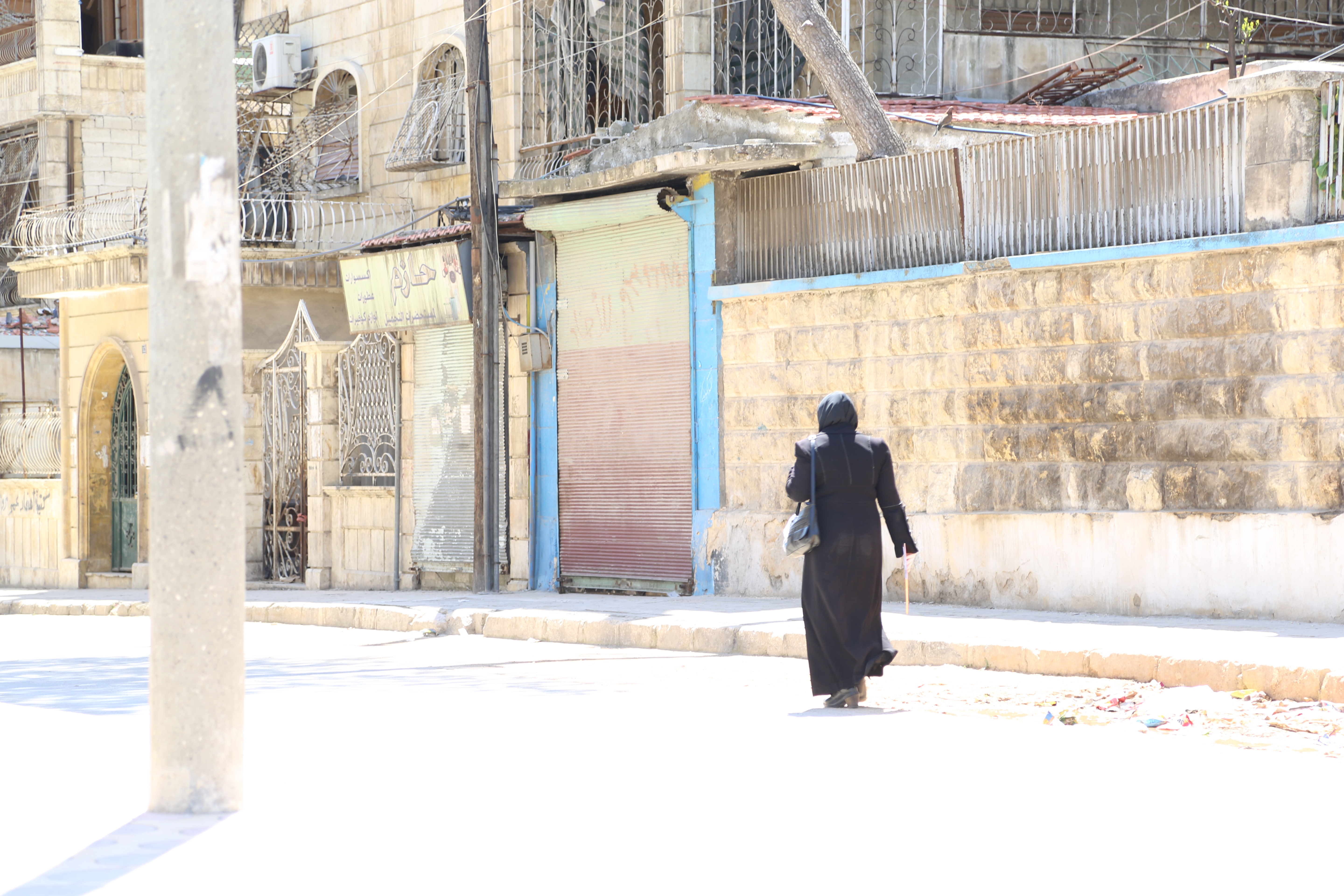Killed by the Bullet That Hit My Son

I only understood the true meaning of war when my son was killed. My life simply ended that day.
All my dreams for him were ruthlessly snatched from me. I would never see him grow up. I would never see him live happily ever after. Instead, I had to live with the knowledge that his lifeless body was now lying in a hole in the ground, covered by earth.
Back in 2011, when the Syrian revolution started, my eldest son Khalil was in the eighth-grade. Despite being so young, he would come back from school and finish his homework, then rush out to participate in Douma’s peaceful demonstrations.
One year later, Khalil had gone from participating in demonstrations to organising them at his school. He was studying for his ninth-grade national exams at the time, and I worried that he would lose focus on his studies, but he didn’t.
I still remember how he used to sit by my side in the evening and tell me what he had done that day. We would discuss the revolution, its aims, and its meaning. I was amazed how mature my little boy was.
That year, Khalil became interested in Syria’s modern history. He would log on to the internet and browse articles about the country, then tell me the stories he had read about government corruption and manipulation. I think he was trying to prove to me that he was no longer a young boy who enjoyed participating in rallies, but a young man who knew right from wrong and was seeking justice.

On the final day of Khalil’s ninth-grade exams in July 2012, there was a massacre in Douma. My family and I were spared, as we fled as soon as the army stormed the city, but many of Khalil’s friends and their families were killed.
When Khalil heard the tragic news, he decided then and there to join the Free Syria Army (FSA). I told him I wouldn’t allow it – he was just too young – but he insisted, and there was nothing I could do to prevent him.
Khalil joined the FSA’s newly-formed Bara unit as a photographer, and learned the basics of filming demonstrations. His unit became the talk of the town when it captured 48 Iranian soldiers and aired footage as proof.
The Syrian government retaliated, storming Eastern Ghouta on August 7, 2012. They raided the farmlands where FSA members were known to hide out, and a battle erupted.
I could hear the clashes from my house and I prayed for Khalil’s safety, but death found him that day. A single bullet penetrated his chest, killing him instantly.
His unit withdrew and left his body with a local family, asking them to bury him.
I learned of Khalil’s martyrdom at sunset that day, and my heart broke. Not only had I lost him, but I had also been deprived of a chance to say goodbye and bury him.
Days after his death, Khalil’s national exam results were announced. He had passed, earning very good grades. I went to his school and collected his certificate to save as a keepsake.
A few months later, I was dealt yet another blow. A deal had been brokered and the Iranian prisoners were released. I felt nothing but anger and bitterness as I watched news footage of the prisoners’ families celebrating their return.
I realised that we Syrian revolutionaries were becoming the victims of a base conspiracy. The government and those who had exploited the revolution were tainted equally with the blood of those who had sacrificed themselves for the sake of our freedom.
Many people say that life goes on, but I had lost all interest in living. My dreams for my son had been shattered, and the pain of separation had broken my heart. The words of comfort which people said to me were like salt in my wounds.
Nevertheless, I did what I could to support my children and my husband, who seemed to have aged 20 years since the loss of his eldest son.
Little did I know that life’s brutality would not end with the death of one son. Life had more cruelty in store for me.
Qamar al-Said is the pseudonym of a woman from Douma who had begun writing for IWPR’s Damascus Bureau before her death on November 19. She and a cousin were killed when a rocket landed near the farmhouse she was living in. Qamar was in her forties, married with three daughters and three sons, one of whom was killed while working as a photographer with the Free Syrian Army.
We are publishing articles written by her as a tribute to her memory. Qamar is a pseudonym which we are continuing to use in the interests of her family’s security.
Read the Arabic version of this article here
